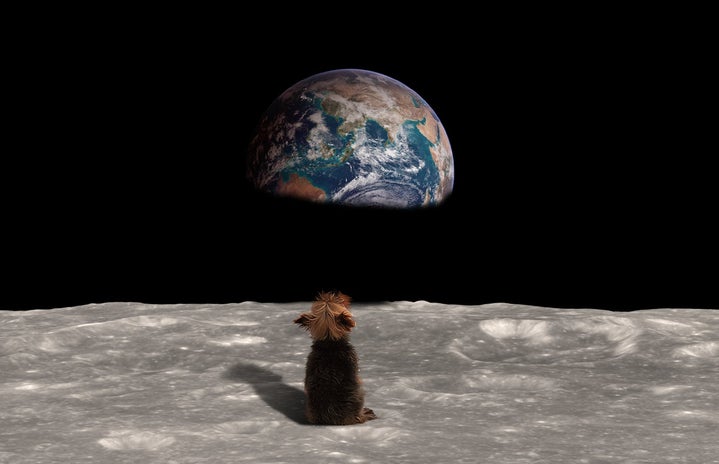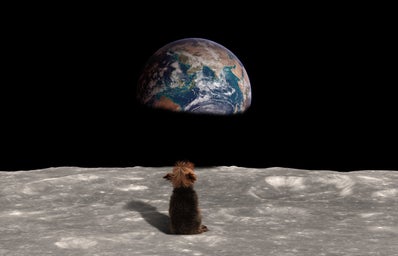Emmie Yao, a first-year student studying nanoengineering at the University of California San Diego, is committed to becoming NASA’s next leading rocket scientist—and you might say she’s on the fast track to getting there. Last year, she was introduced by a friend to the Jet Propulsion Lab, a branch of NASA that focuses mainly on Martian exploration using robotics. Having already cultivated her passion for robotics throughout high school, she began to immerse herself in everything JPL-related, from following their social media accounts on every platform to watching their monthly von Kármán lectures to attempting NASA challenges with her friends. Simply put, Emmie “[loves] astronomy and everything behind it.”
Serving as the Head of Business on her high school’s robotics team, the Millenium Falcons, for three years, Emmie pitched the team’s robot to various companies in order to gain funds to build increasingly complex bots. Her senior year, they were able to pull in $60,000 to build two robots and attend three regional competitions (all of which they won).
Now, as a college student, she is taking physics courses and plans to minor in astrophysics. After she completes her undergraduate degree, she hopes to earn a Ph.D. in a field that will lead her to a career in outer space robotic exploration.
“Last quarter, I met some researchers at NASA who really inspired me because their intentions are just so pure, and that’s why I love this field,” said Emmie.
Once she is back at school in the fall, she plans to start a planetary geosciences club to connect with others who share similar interests.
“I just want to create a community that is constructive and supportive,” she said.
Q: Which NASA challenges have you tried and/or are you interested in?
A: So I really wanted to attempt the Venus rover [one], but the challenge was to create a sensor that can last in over 800 degrees F+, which I do not know how to do as I barely know what a sensor is right now. But a challenge I am really interested in is the NASA zero-g challenge, where you design something that can last in a certain type of environment with zero gravity (they will release the specific type of environment in November). As I get deeper into my physics education, I will definitely apply for more challenges.
Q: Has there been any von Kármán lecture in particular that has stuck with you?
A: This lecture about Mars was what really sparked my interest. Dr. Abigail Fraeman talks about her research and work on the Curiosity and the MER rovers and what challenges they had to overcome building those, and what they are expected to find on Mars using those rovers. She goes into how both the MER rovers (Opportunity and Spirit) lasted way longer than they should have, and how they found potential water and life on the Martian surface. This is what sparked Mars 2020, and future research. I was really inspired by…Dr. Fraeman, so I reached out to her, not expecting a response at all. To me, she’s a celebrity. She’s won multiple NASA awards and is more than renowned in this field to anyone you ask. I emailed her saying I really enjoyed her lectures and was wondering if she has any advice to give me. She actually responded, saying she’d love it if I emailed her next year for a potential internship at JPL because she loves my enthusiasm (and I also sent her my resume along with the email).
Q: What were your interactions with NASA researchers like, and how did they make you more passionate about the field?
A: I met a girl who is a physiology researcher for NASA, so she works with how the body is in space and the effects of zero-g on the body, especially blood clotting/edema. She is so inspired by her work and loves what she does. I have a friend that interns at NASA Goddard who says the environment is very constructive and amazing and echoed my thoughts of the fact that everyone is so inspired and are trying to change technology for the better. My end goal is to be able to have an impact on the world by doing something I love.
Q: How has your journey been as a woman in STEM, particularly in a male-dominated field like physics?
A: A lot of people don’t know this but I did have a really difficult time in robotics. I was the only girl for about a year, then one other female joined. We recruited a lot and now there are more, but that time of me being alone was very hard. The “jokes” obviously never resonated with me, and I was bullied a lot. However, I took those experiences with me and ran with them. I learned to grow tougher skin and to appreciate everyone for their ideas. It helped me grow a lot, and I learned pretty fast that a lot of the men that are so admired aren’t really all that. As Michelle Obama said so perfectly, all the men at the higher up table who scoff at you for liking science “really aren’t that smart.”
“Being a woman in physics, it is inevitable that I will be outnumbered by men anywhere I go,” concluded Emmie. “That is a battle I will be fighting for the rest of my life—to be heard and respected. However, as I grow and [continue to] take punches, I’ve learned [that it’s important] to believe in yourself and know that you have everything you need to be more successful than those who doubt you or wish to see you fail.”
Overall, Emmie stressed the importance of women staying strong, supporting each other, and believing in themselves. “It’s really important to bring women up and empower each other, whether it be commenting supportive things on your friend’s photos or supporting each other in the sciences,” she said. “If you keep a calm, clear head and just do the work needed, gender really doesn’t matter in the long run.”
Want to keep up with HCBU? Make sure to like us on Facebook, follow us on Instagram, check out our Pinterest board, and read our latest Tweets!


